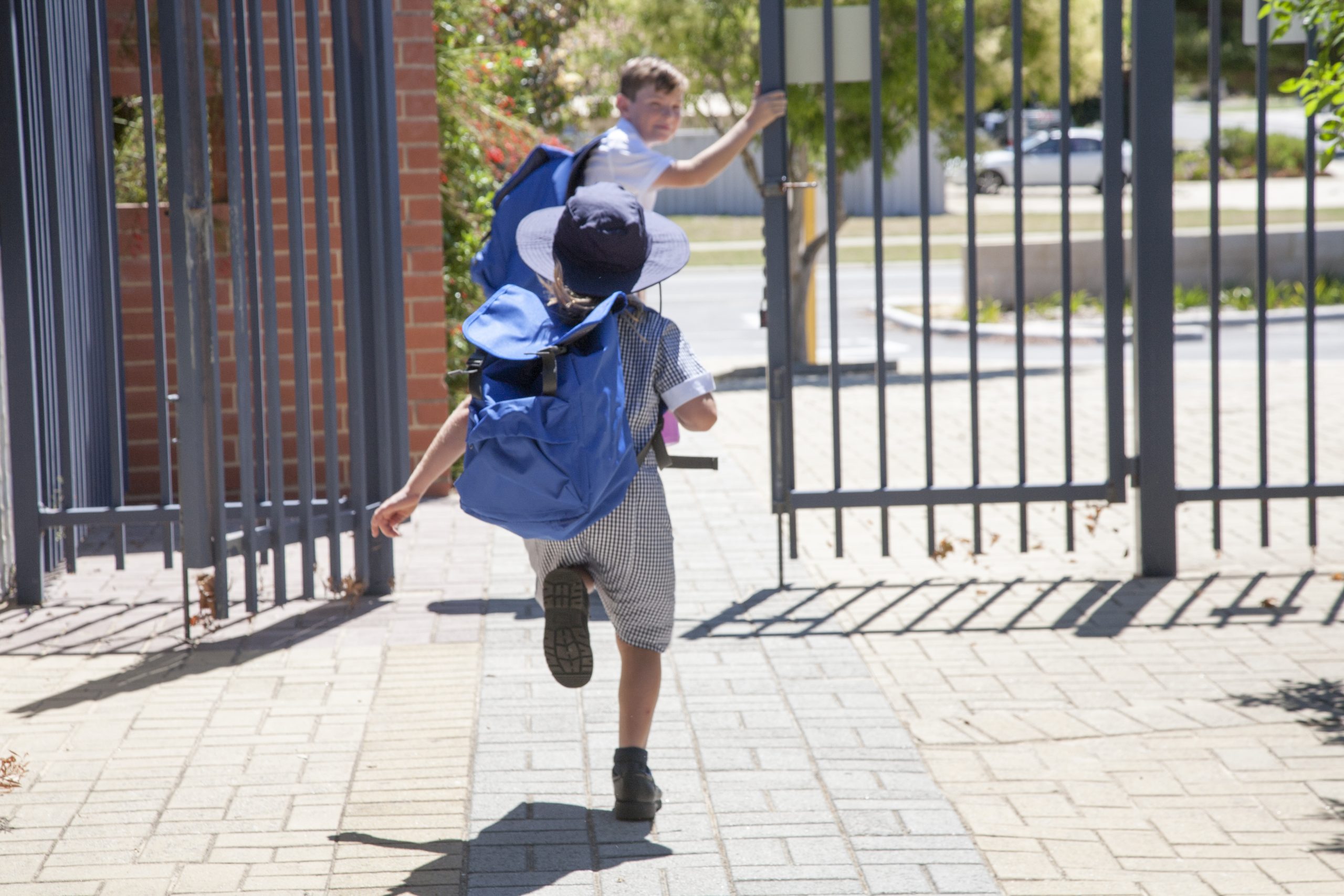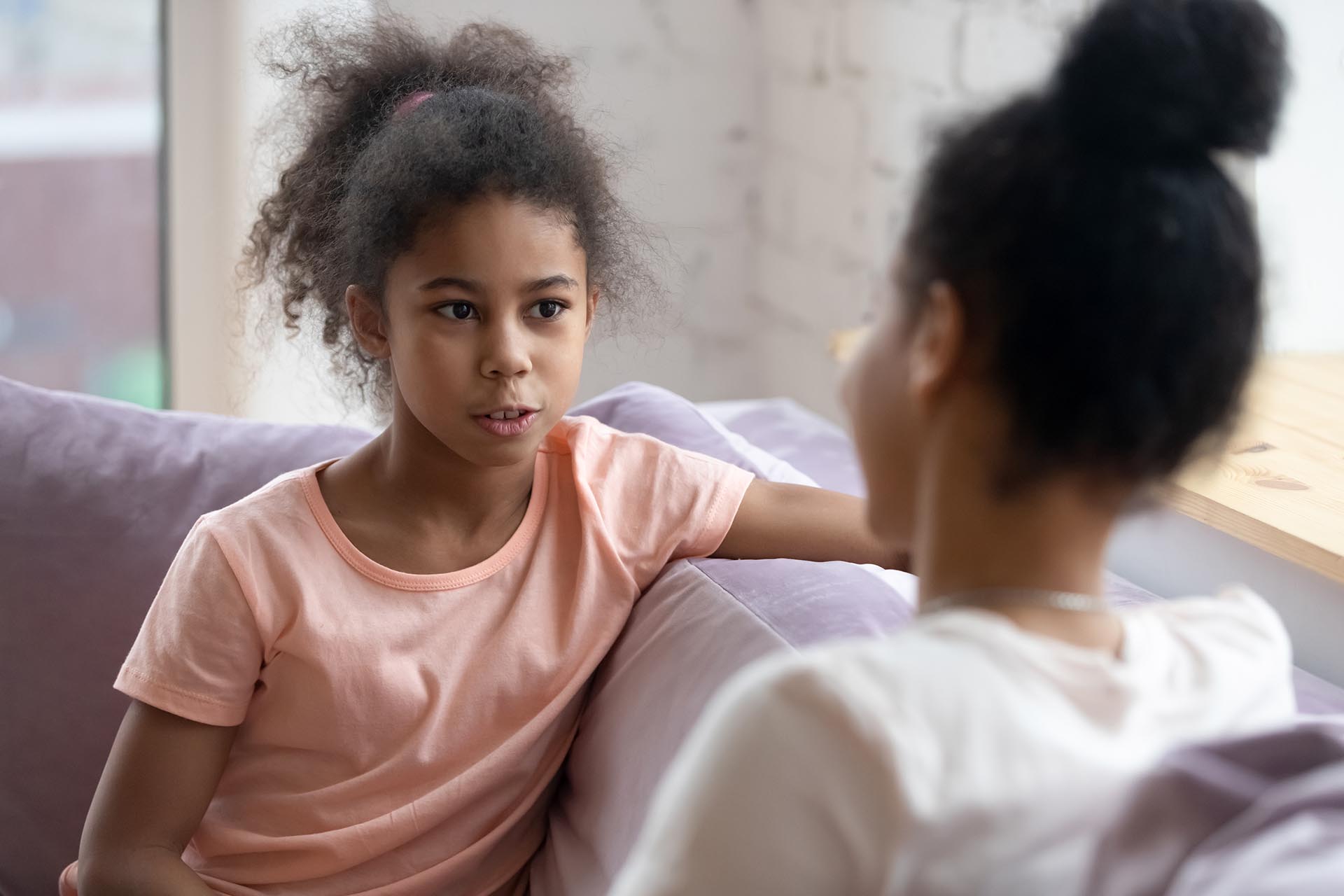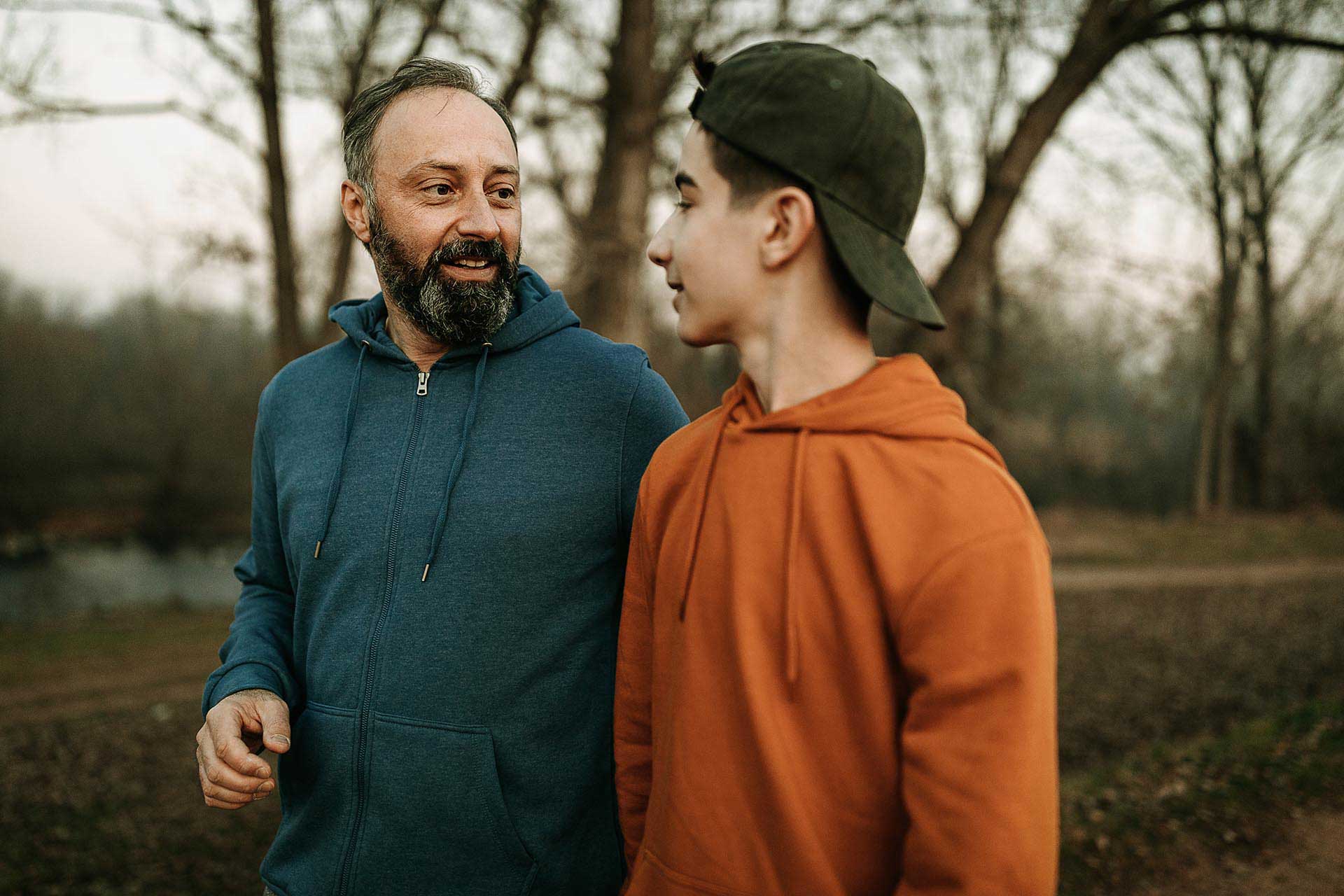Teen relationships and social media
With teenagers stuck at home unable to see their romantic interests or partners face-to-face, many are turning to social media. Others may be starting up new relationships online, away from the usual group setting – where they’d normally have friends to guide them and help slow down the relationship’s progression and intensity. And with these things come sexting, whether we like it or not. Sexting is the sending and receiving of sexually explicit messages or images, most commonly ‘nudes’ (naked photos and videos). Even without the pandemic and lockdown, young people are still engaging in sexting. One study from 2018 found that one-third of students from years 10 to 12 had engaged in recent sexting activity.
We never want to shame a young person for sending nudes or make them feel guilty for exploring their sexuality. But there are risks involved with sexting that adolescents need to know about, and this is also an opportunity for you to state your expectations and values. Some caregivers will find it tempting to take a hard zero-tolerance approach, but sexting can be a normal part of the fabric of young people’s lives, and we can’t monitor their every usage of phones, laptops and so on. We also want them to know they can come to us if something goes wrong. When we’re in classrooms working directly with students, we have to take a conservative approach. But if parents and caregivers have a frank and ongoing conversation with their teens about these risks – rather than saying ‘don’t do this’ (which, c’mon, does that ever work with teenagers?) – they can help to keep their young people safe.
What are the risks?
OK, so your teenager does need to know this stuff. The problem with sending images of yourself over the internet is that once they’re out there, they’re out of your control. People can, and frequently do, show others or spread the image through social media channels, when the sender trusted them not to. Then there’s the issue of legality. It’s illegal to forward or share a sexually explicit image of someone without their consent or permission. Your teen could also risk being charged under child pornography laws. In Victoria, sexting between under 18s (who have no more than a two-year age difference) is legal as long as there is consent from both parties, however, technically federal law states that this can still be considered child pornography. As well as the above, there’s the risk of child predators who pose as teenagers and engage in online relationships to groom and solicit sexual material from young people.
Snapchat and Instagram
Many teens claim that it’s ‘safe’ to send images over Snapchat and Instagram because of their feature that disappears these images after they’ve been viewed. But are they actually safe? Well, no, not really. Although Snapchat will send you an alert if someone screenshots the image you’ve sent (Instagram doesn’t even do this), you can’t prevent the viewer from taking the screenshot in the first place. And you won’t be notified if they take a photo of the one you’ve sent using another of their devices, which is something we’ve heard happens.
So how do I talk to them about staying safe?
Open the door of conversation. That’s the best first step. Ask them if they’ve heard of sexting, or if they know if any of their friends do it. Ask them if you can have a chat about it now. Ask them what they know. What their peers are up to in general, and how does it make them feel? Ask them how they would feel if they found out about a friend’s image being shared without their consent. Talking about their peer group more generally can be a good way to approach the topic without crossing any privacy boundaries.
Talk to your young person about the importance of trust when it comes to sexting. They have to know this person and believe beyond a shadow of a doubt that they will keep these images private for as long as they have them (even if the relationship comes to an end). If they have the slightest ambivalence, don’t hit ‘send’. Tell them to trust their instincts; if something doesn’t feel right, it probably isn’t. Of course, this can’t completely safeguard your teen, but it minimises their chances of something bad happening. But also let them know that if they do ever sext someone who breaks their trust and shares their images, they can still come and talk to you, and that you’ll help them and you won’t be mad.
You want your child to be safe, but you also want them to be keeping others safe – so talk to them about consent. Try to less about what they’re doing, and more about how they (and their partner) feel about what they’re doing. If they’ve told you that it’s something they’ve done before, ask them how it made them feel once they sent or received a picture. Ask them how they think it made the other person feel. Talk about the importance of not pressuring anyone into doing anything, and not letting themselves be pressured.
In terms of more practical things to touch on, ask them to get a passcode on their phone, and to request the person they’re sexting to do the same, as this will stop strangers from being able to access the photos. Ask them to send photos that don’t include their face or any identifying features. And do talk to them about the law. It’s important they know this, and are aware of the specific risks involved. Finally, it’s important to reiterate that no matter what happens, you’re there for them and they can always come and talk to you if something does go wrong or makes them feel uncomfortable. You could say?
- ‘Have you ever heard of sexting? Have any of your friends mentioned doing it? You may not want to talk about this with me now, and to be honest, I feel a bit uncomfortable talking about it, but I think it’s important that we do. I’d like you to think really carefully about what you’re doing online. I’ve just read an article about people’s images and videos, that were meant to be private, being shared with friends and other people. I want to check in and make sure you understand how doing sexual things online can be risky, and to talk about what you can do to try to make you more safe if you do choose to do any of these things.’
- ‘Can I have a quick talk with you about something important? Is that okay? I just wanted to touch base about sexting. Do you know what I’m talking about? Is that something you know of people at school doing? You’re getting older and might start dating soon, and I know technology plays a big role in young people’s relationships these days. Do you think that’s true?’
You can also add, ‘Aside from my own or even your own values and opinions on sexting; there are some things you need to know when it comes to the law. It’s illegal to share sexually explicit photos of something without their consent. Also, in Victoria, sexting between those under 18 is only legal if there is consent from both parties AND there’s no more than a two-year age difference between the two people.
Further reading
- this article from BuzzFeed talks about apps for safer sexting,
- this article from SBS explores more of what parents need to know about sexting
- this podcast explores sexting in general
- our article ‘Social media use over the holidays: talking to your teen or child’
- our fact sheet, ‘Let’s talk: keeping safe online’










